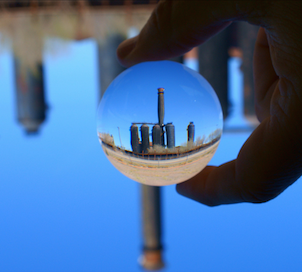
Industry 2014
How can industry innovate to meet the climate challenge and drive sustainable growth?
Industry is the key contributor to economic growth and prosperity, and is also a leading global source of greenhouse gases (GHGs). The International Energy Agency estimates that to meet global GHG reduction goals by 2050, a full quarter of all reductions need to come from the industrial sector. This contest seeks innovative, well-described, actionable solutions that will enable continued global economic growth, while achieving major emission reductions in the industrial sector in the coming decades.
15
Proposals
Molecular Imprinted Polymers present a unique oppurtunity to make cheap materials that selectivly bind to and filter pollutants.
An online sustainable materials database and networking platform working toward creating a new era in industry with a Zero emission mission
Moving the entire industrial sector over to carbon negitive fuel can be largely achieved within 20 years. This proposal offers one path.
#STRAUT AERO #Innovative design #solar hot air gen. massive potential 4 addressng industrial process heat req. #economic wthout subsidies
Favorable in-store product placement, in-exchange for advances in energy efficiency.
Chest freezers are much more energy efficient than upright freezers, so why isn't there a top load refrigerator/freezer.
Interactions for real time tracking and true integration are critical to influence industrial changes necessary for GHG reductions
Prove by calculate absorbCO2/creatO2 of plants before/after we build buildings/industrial area . Prove environmental laws is wrong by data .
Small businesses and consumer collaboration to create new products and services that tackle climate change and create sustainable growth
Industry will probably need fossil/bio-fuels for decades. HCCAS converts resulting CO2 to O2 AND makes food/biofuel.
Amazon sets up opportunities to cut down on individual deliveries, instead combines deliveries to people who live close to each other
Thermal energy & kinetic energy conversion of the Gulfstream to lower Co2 GHG emissions anywhere between 300ppm/350 ppm in 20 years.
Do you ever drive along the highway and wonder why we preserve swathes of empty space? I do too. So many large structures unused.
Radio Frequency Identification (RFID) tags can be used to measure the amount of embodied energy flow throughout the supply chain